The māfana energy and Tongan extra-ness of Red, White & Brass
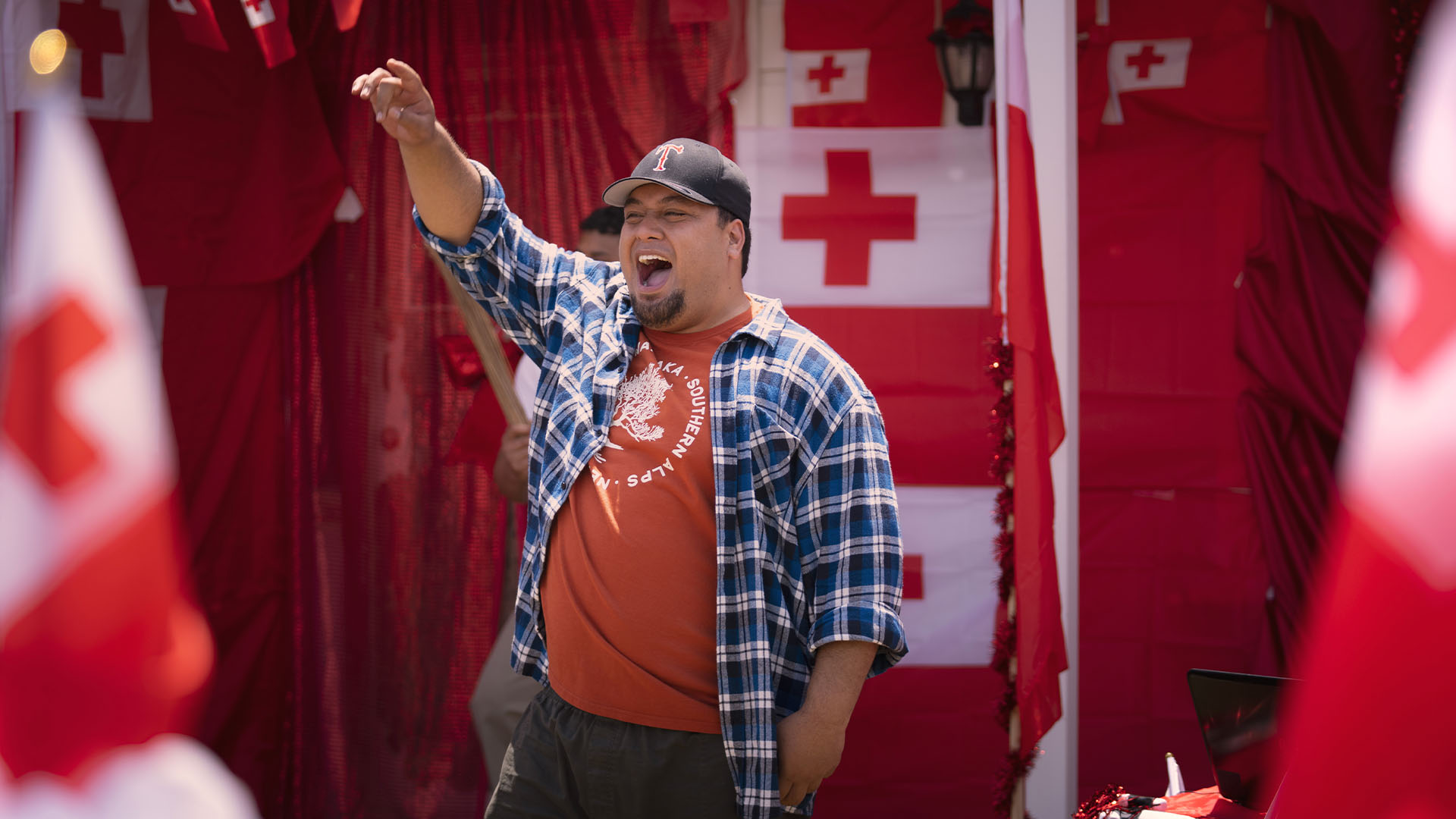
Inspired by a true story, Red, White & Brass sees a group of Tongans come up with a bold plan to see their team play a sold-out game at the Rugby World Cup. Back in March, when the film opened in New Zealand to massive box office success, director Damon Fepulea’i and his screenwriting partner Halaifonua ‘Nua’ Finau spoke with Steve Newall.
Red, White & Brass
After missing out on tickets to see their team play France in Wellington at the 2011 Rugby World Cup, a group of Tongans hatched an audacious plan—form a brass band to play at the game. Halaifonua ‘Nua’ Finau was one of the band members, and is now about to see the film he co-wrote about the experience open in cinemas.
Alongside his writing partner, director Damon Fepulea’i, Nua joined Flicks for a chat about their heartwarming comedy.
FLICKS: How are you feeling about the film as it nears release?
NUA FINAU: It’s a pretty surreal feeling to be honest. I think kind of early on, I always wanted to make a street classic, you know, one that the people loved. I wasn’t really too fussed on the awards and accolades. And as long as our Tongan and Pacific New Zealand audience loved it, then I think it was a success. I think we’ve done a really good job of capturing the energy that’s in a stadium when the Tongan rugby team plays.
FLICKS: Not to say that a huge amount of effort hasn’t gone into it, but there’s sort of an effortless nature to the humour – it’s really character-driven. How did you go about bringing that to the screen for us?
DAMON FEPULEA’I: I think that a lot of that credit would have to go to the actors. We got really lucky with the casting, because there wasn’t a huge amount of people to choose from at the time. If you go “How many Tongan actors of this age that would fit into this role?” it’s not like there was a huge amount of experienced actors.
We got super lucky. Every single actor that we had just seemed perfect for the role and brought something amazing to it. So the effortlessness about it, a lot of that just came from how good the actors were and how they formed a group and worked with each other. I think that’s where a lot of the credit would have to go.
And then on the other side of things, I guess between Nua and I, I think I brought a broader range of comedic sensibilities, whereas Nua’s really specifically got the Tongan sensibilities as well. So I think between that, it’s made something that a broad audience could get, but then there’s also a lot of… not private jokes, but jokes that are more specific to Tongans, who’d see things that non-Tongans might not.
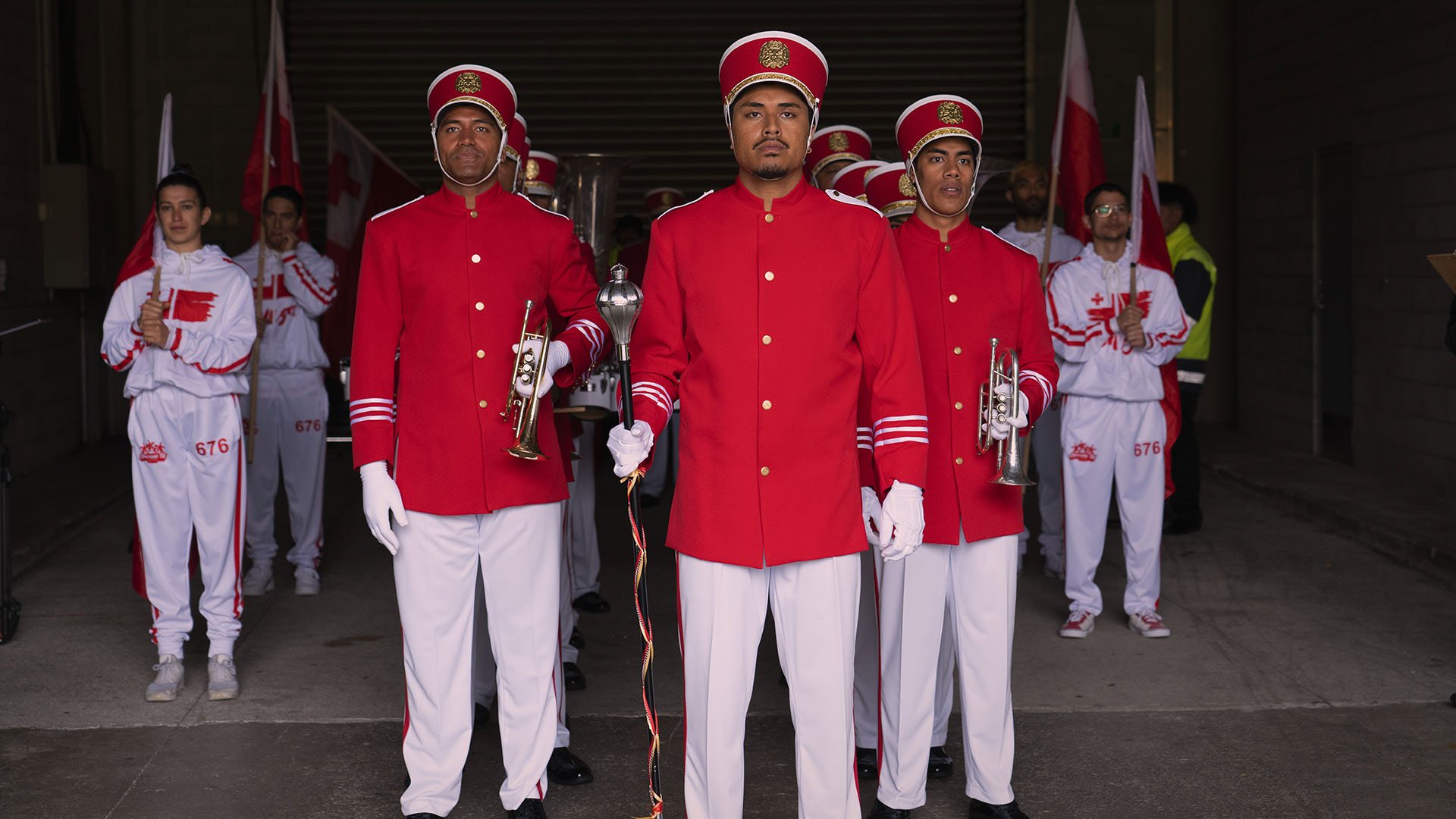
NUA: My man’s being a bit humble there. I reckon a lot of it is credited to the environment that Damon fostered on set that allowed our actors to just be themselves and not having a high-pressure stressed environment. A lot of the cast were first timers so it’s quite a daunting environment to come into, but the style and manner in which Damon set the scene and how he ran the set and how we decided to shoot it allowed them to not overthink it.
He’s not out there putting extreme close ups on these first time actors and just allowed it to kind of free flow with the comedy. I think that kind of comes from his experience doing a lot of comedy on things like Jono and Ben and stuff, just knowing that getting a naturalistic energy on set will come across on on screen, and I think he did a great job in setting that up.
FLICKS: Do you see parallels between the true story and the actual process of making a film about it?
NUA: Oh, yeah, 100%. There was Déjà vu a lot of the time, especially having so many of the real life subjects involved in the retelling of the story. But also, I think what helped a lot as well as with the film, is that the main characters Maka and Veni, the makeup of their characters is very similar to me and Damon. So when we would be looking at scenes or writing the rhythm of scenes, and how these characters interacted with each other, Damon had a lot of Veni’s energy, I guess. And I had a lot of the stuff that Maka brought across.
We had good personal experiences that we could bring to the script. And I think that kind of comes across on screen, that energy—the natural dynamic, I guess. Definitely it was art imitating life, I think, in more ways than one, like not only in the real life going back in time, but also just with me and Damon, reliving our own kind of experiences.
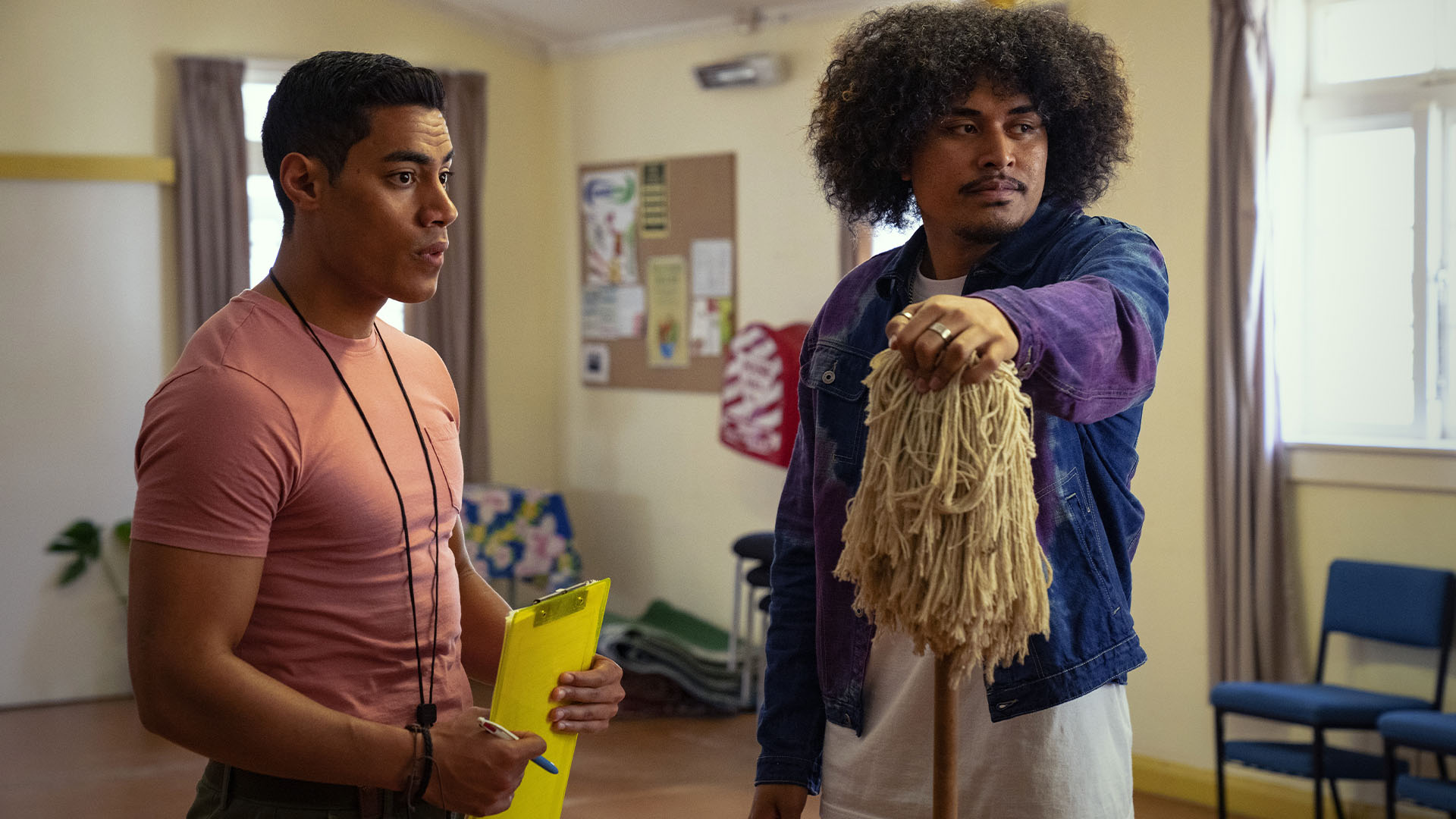
DAMON: I think that’s where the truthfulness of the characters came in, both of us sort of exploring our own worlds, and that’s where the two main characters came from. And, basically, Maka in real life is Nua. And you see that Nua has that same energy that Maka has, where it’s just like, “Oh, yeah, we can get it done, I’m going to make a film. Yeah, we can do it”.
We explored what it means to be Tongan, that extraness. And also just that, if you set your mind to it, you can do it. I felt that we did kind of ride that Tongan wave during the making of the film. In terms of the cast, and the extended cast, how the marching band came together, how everything sort of worked, it did feel a lot like real life was imitating art. These characters are trying to create a band to perform at the World Cup, and we were making this film to present to the world—yeah, quite a lot of parallels in there.
FLICKS: Do you see any other parallels between making the film and in real life? How do you think the more conservative members of the Tongan community will feel about the film?
NUA: Definitely there are parallels. The way that arc was structured is that it is very specific to a New Zealand-born Tongan or Islander that grows up in New Zealand, in a religious upbringing but also going to school with many people and different races and ethnicities and influences and trying to balance both of those foundational characteristics and influences. And I think that from a Tongan and Polynesian perspective, a lot of us are trying to straddle two worlds of the respectful, religious, Pacific upbringings that we have, but also trying to be New Zealanders as well. Like, I tell everyone I’m a New Zealand-born Tongan.
But the other side of it, with the establishment and the father/son dynamic, it’s something that New Zealanders in general, even my mates, we all struggle to talk just as men, and you don’t really share your dreams and your goals to your dad. So, I think that will cross over even though it is very specifically Tongan. The heart of the relationship and that theme is very universal in that we’re all dealing with establishments of some sort, trying to live out our best selves and be our authentic selves as well.
I had to get it on camera with my dad saying, “Son, I’m proud of you” because I’ve never heard it in real life. I had to get it. And I was telling Damon “cut the music, because we need to hear this nice and clearly”. Yeah, I think a lot of us as New Zealanders in general, Kiwi men growing up, know our parents love us. But they might not often tell us that.
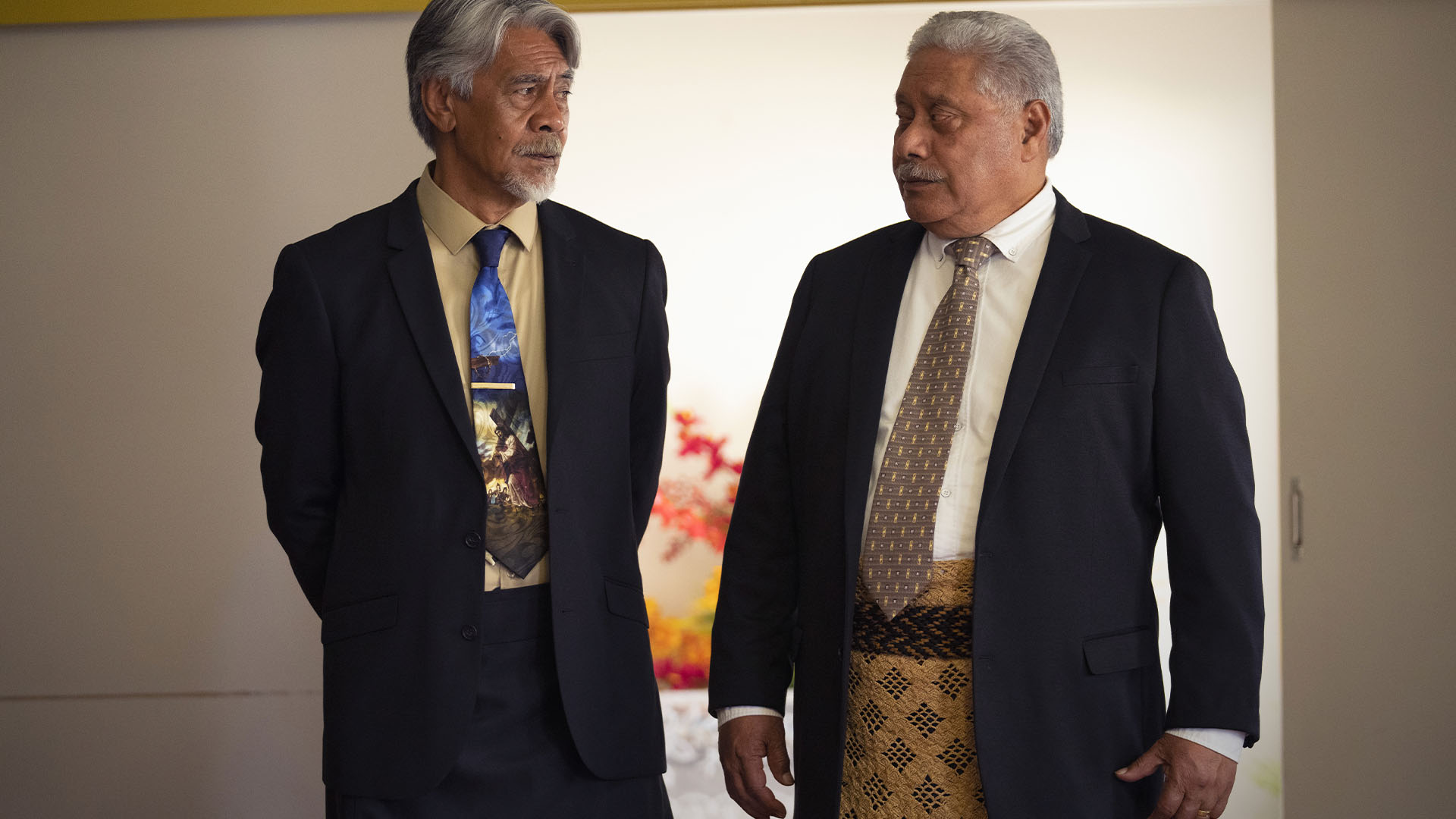
FLICKS: Look, it doesn’t get more authentic than putting your own parents on screen. How did that play out?
NUA: Man, I didn’t even want them to be in it, eh, to be honest. I knew it was gonna be a mission. But like Damon was saying, there’s a very small pool of talent. And we found that out early, and we went out community casting. We just couldn’t find a mum and dad, that was in the age range of JP [John-Paul Foliaki, who plays Maka], you know, that could honestly sell being JP’s parents.
I can’t actually remember the audition. But what I do remember, of getting my mum on, is that she video called me. I was talking to her and then I just turned the camera and introduced Damon as the director and asked her if she wanted to be in the movie or something like that. She was telling me off in Tongan, and Damon just was like, “she’s the one”. And I was like, “Oh shit. Okay, here we go.” My dad didn’t even audition. She just said my dad’s doing it. Luckily, they were actually good, because who knows if I would still be here if I had to fire them.
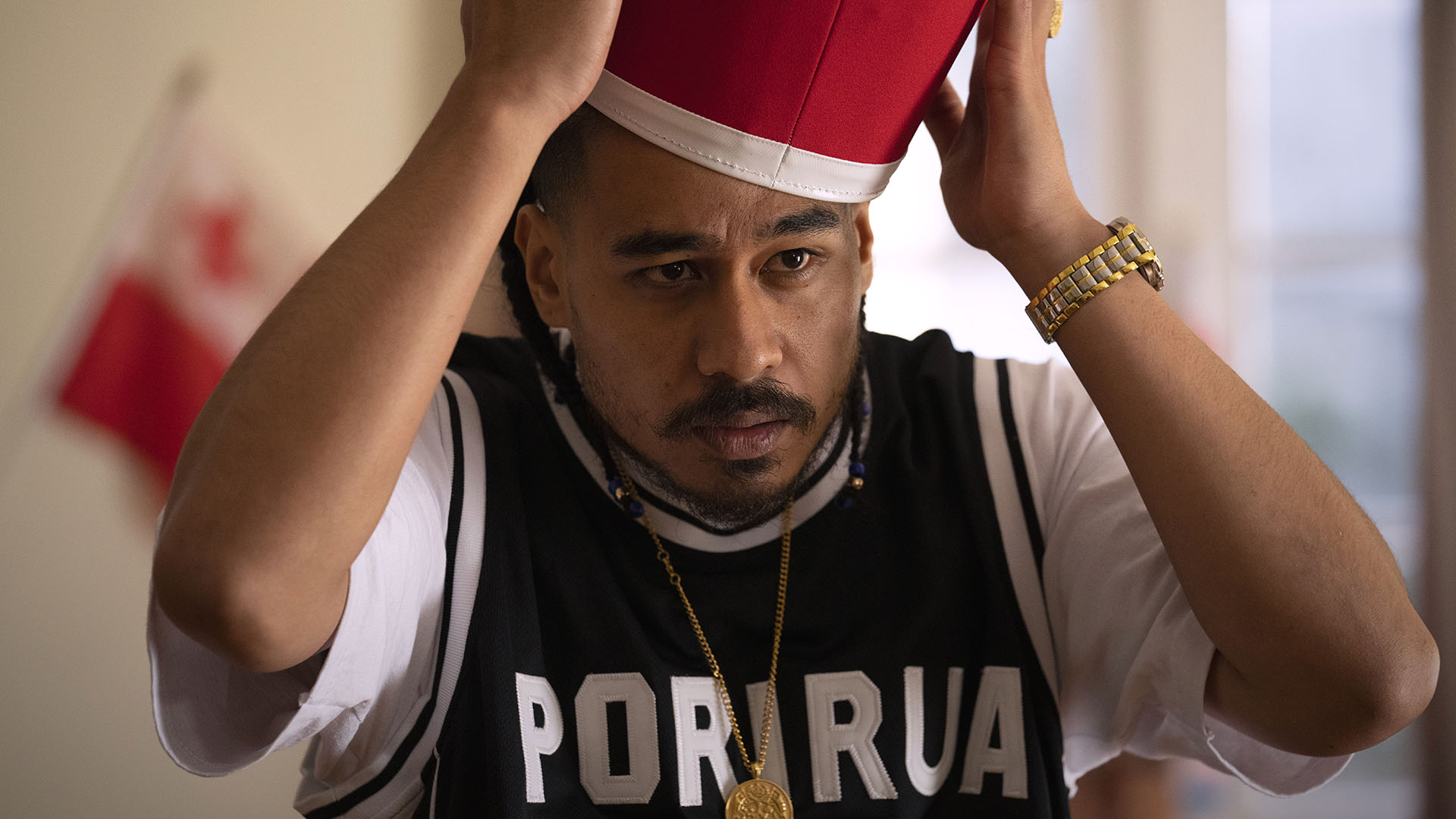
FLICKS: How do you think specifically Tongan characteristics informed the film’s sense of humour?
NUA: I think that’s kind of captured in the word or the kind of theme of māfana energy—leave your brain at home and go with your heart, like it’s just not overthinking things. And our humour as Tongans, a lot of the time, you’re either a laughing Tongan, or crying Tongan—I think Vea Mafile’o (For My Father’s Kingdom) said that in one of her documentaries. And I think it’s so true, because we capture that in the film. There’s a lot of laughter in this, but there will be tears in it as well. Because if you go to any Tongan funeral, even if it’s a funeral, people will always try and make someone laugh.
I think that’s kind of what we wanted to capture in this film, as well as that māfana energy and this spirit that we have as Tongans. Like what Damon was touching on earlier is that māfana energy kind of went through the whole crew and we all bought into that ethos of “Yeah, we can do it because we’re Tongan.” Like, I’ve pretty much told that to anyone that would listen to me over the last four years of making this thing. I haven’t done a short film or anything yet, but I’ll do this film because I’m Tongan. And I’d get sideways looks all the time, but I’ve never really doubted it. And yeah, when the Piki Films lot came on, it all just kind of fell into place.
It’s surreal to be honest, to be able to make something of this possible cultural impact for Pacific Islanders and, more specifically, Tongans. There’s hope that this film will inspire a whole other generation of storytellers much in the same way that the Polynesian filmmakers and storytellers before me, kind of energised me. So I think it’s pretty buzzy .
In the film, Veni tells Maka “Man, I can’t believe we actually got here. We’re actually performing at the World Cup”. And my friends have told me that too—“I can’t believe you actually made a movie”. It’s a really strange feeling—I couldn’t even believe it. I’m like, “Yeah, me neither”. It’s a buzzy thing for me, too.
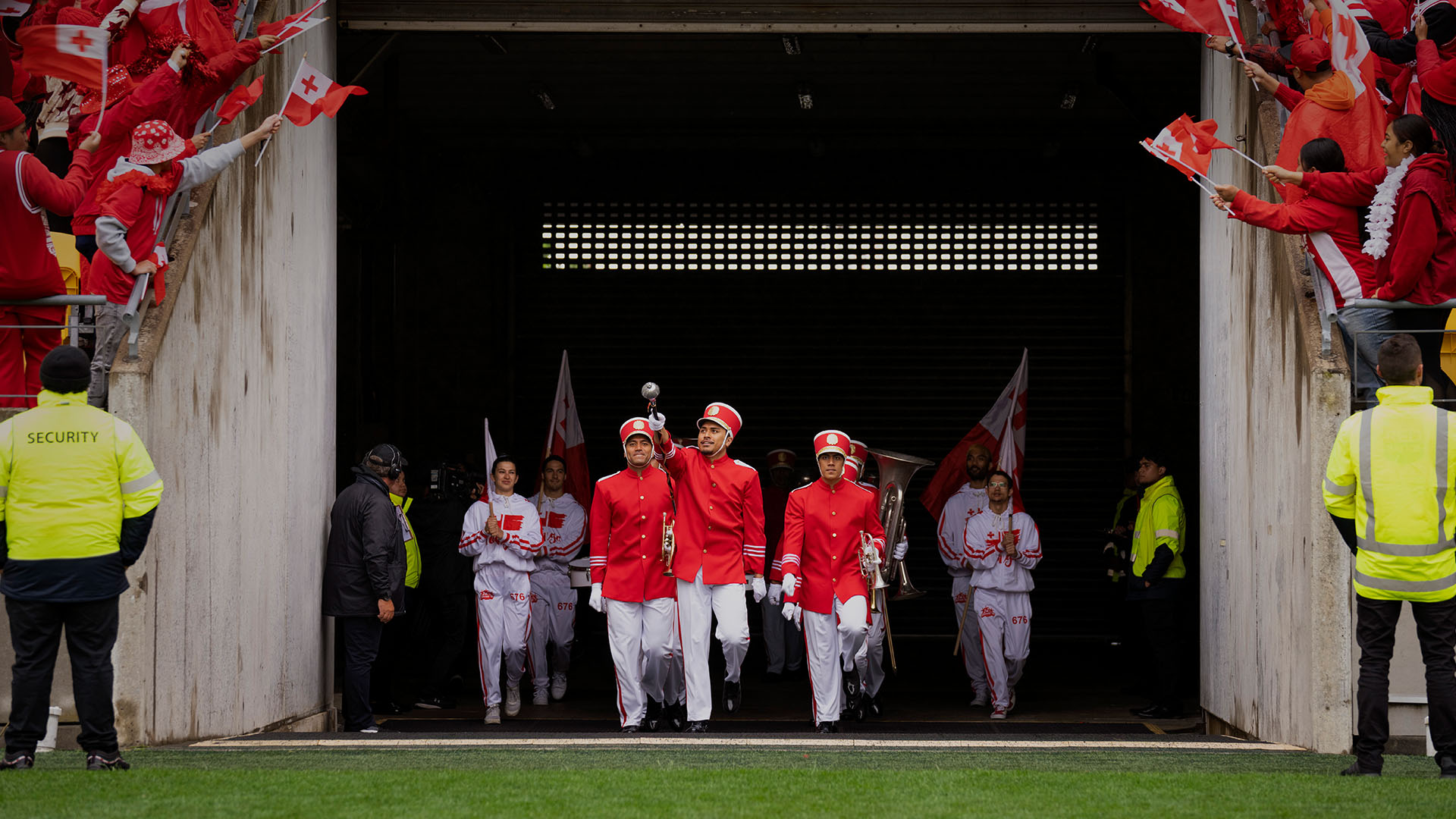
FLICKS: Damon, what sense of responsibility did you have in showcasing someone else’s culture so, so large on the screen?
DAMON: I think there were two things going on with that. One was something that we’d discussed really early on, was to make sure in terms of just being a Pacific story that it was honest and truthful and through the lens of Pacific Islanders. And, to their credit, Piki Films as well, like, all the producers were really on board with that to make sure it was as authentic as possible.
Things that non-Tongan audiences might not quite get, that didn’t matter. You know, if there was language or jokes or words that people didn’t understand, it doesn’t matter because it’s a Tongan story and they’ll either come on board with it or not. Or, you know, that line or that joke might kind of go past them, but at least they would learn or experience the truthful sort of language, the authentic way that New Zealand Tongans would talk. And then I think from the Tongan perspective, I think, for me, it was just kind of making sure that the world was authentic as well and that we got that right.
During the writing of the film, it was always trying to really explore what that Tongan energy is and also, what is the world in Wellington for Tongans. Tongans in Wellington are sort of different to Tongans in Auckland, and as a Samoan who lives in Auckland, I was just trying to create that authentic world in Wellington that’s truthful.
FLICKS: It’s really nice to see a Pacific story set in Wellington. And to see you strike a balance really well between being specific to Tongan culture and also having wide appeal.
NUA: Oh, yeah, it was something that we’re conscious of, and I really think that dynamic between me and Damon and Carthew, Morgan and Georgina—the Piki lot—really helped strike that balance of authentically Tongan, but then also authentically New Zealand, the melting pot that is Aotearoa.
You kind of get to see behind the veil, I guess, of the flags and everything. And I like to think that as for the general kind of Kiwi audience, that’s something they can be proud of—that in the country they’ve come from, communities like this can thrive.
It’s a reminder that our communities are special. Like a lot of people might say “man, I wish my culture and community was just as proud”. But I think over the last month in New Zealand, it has really highlighted the fact that our communities are strong, there is a strength and a unity within our communities when it comes down to it.
A lot of our communities and cultures now don’t have the hub that we have anymore. I often say that churches for Tongans is like the marae. It’s not necessarily a religious thing the whole time, but it’s a place that we can go that I can hear my language and see my culture. It’s something that I took for granted as a young fella, but now I definitely see it as more of a marae kind of thing, beyond going in for church. And yeah, it’s a proud community story, but hopefully as a reminder to other Kiwis: “Yeah, we’re just as cool as well”.
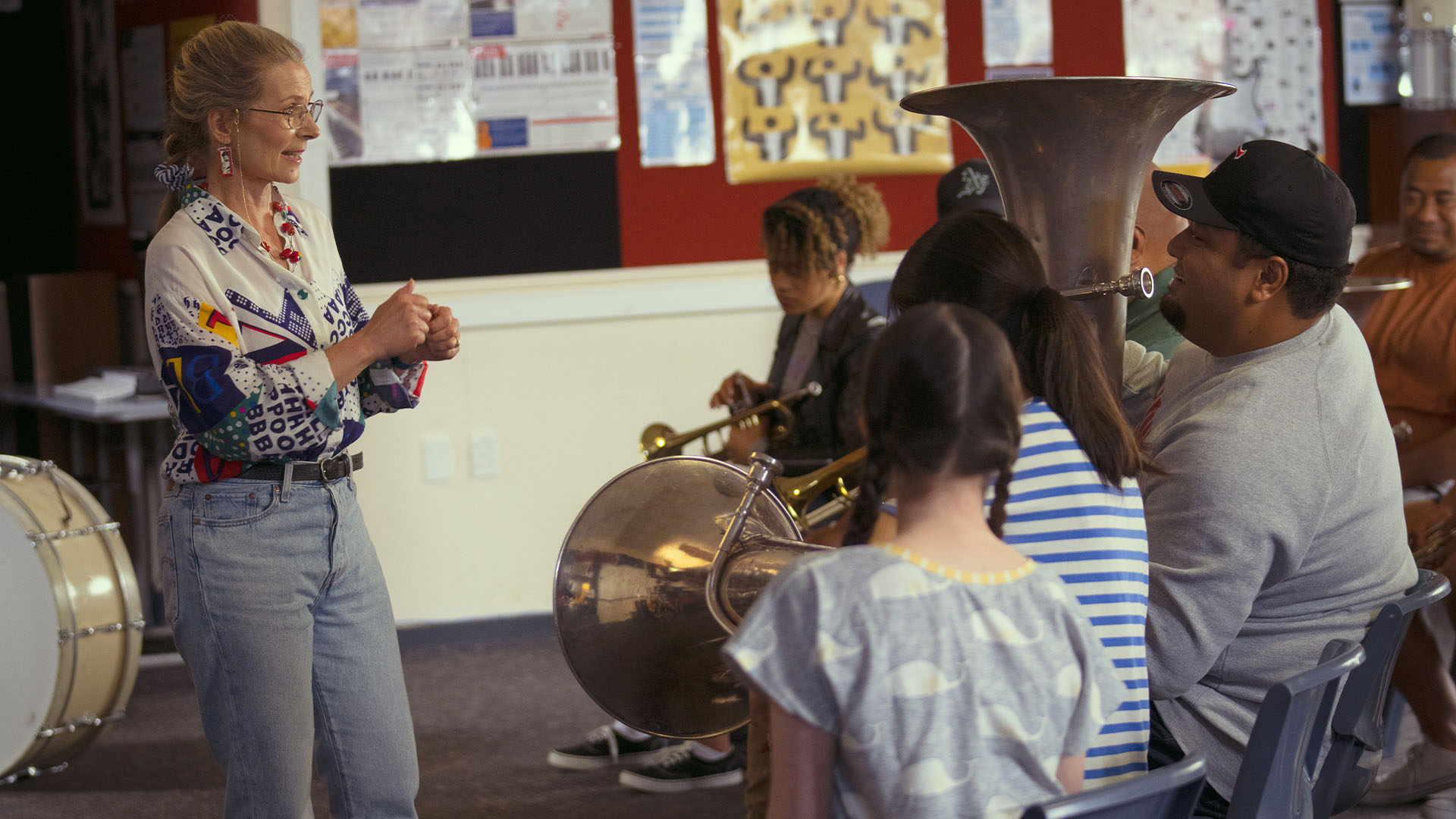
FLICKS: Look, congratulations, because you’ve created a hub in making this film – it’s going to bring communities together in the cinema.
DAMON: It will be quite exciting to watch it with audiences. We screened it in Tonga as well for the Tongan royal family, and to see the Tongan queen, sitting next to her three grandchildren, all of them laughing and enjoying it was a highlight for me.
The first test screening we had, there were two screenings—one was a mainly Tongan audience and then a sort of more diverse audience. And I think we were really worried about the diverse audience in terms of “oh there’ll be all this sort of older pālagi people there, they might not get it”. And some of those middle aged women were cracking up more than the Pacific people.
So it’s just been a really cool journey to see that this film that has a wide appeal. Yeah, it’s just kind of exciting to present it to the world.




















